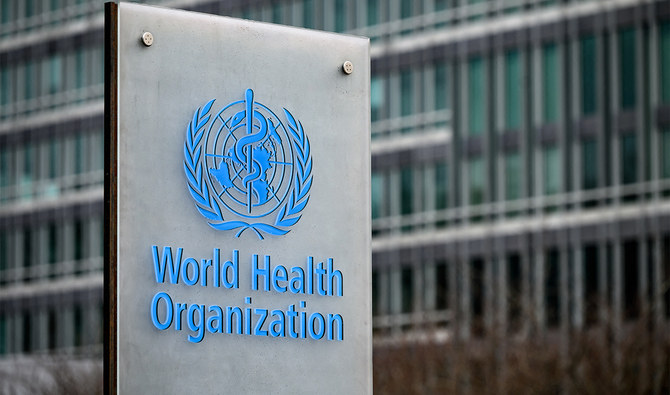KHAIRPUR: Pakistan: Three years after floods drowned Rasool Bux’s village in Pakistan’s southern Sindh province, he still fears every drop of rain.
The 52-year-old farmer from Gul Muhammad Sanjrani village in Khairpur worries another deluge could wipe out what little he has rebuilt. His animals are the main source of income for his family of seven. He sells about five kilograms of milk daily to keep the household running.
The 2022 floods were among the worst climate disasters in Pakistan’s history, pushing millions into poverty and devastating agricultural regions in the Sindh province. As new monsoon rains lash the province, farmers and experts say protecting livestock, often the only safety net for rural households, must be a national priority.
“We are afraid because of what we saw during the 2022 floods,” Bux told Arab News while feeding his two buffaloes and three cows at one of around 200 new climate-resilient shelters built by German relief organization Malteser International in collaboration with the Sindh government.
“Most villagers decided to leave their houses. We are poor people, so we stayed here on the road. Some of our animals perished.
“Then, there were also so many mosquitoes here. The nights were spent in sadness. We didn’t have the money to keep our remaining animals under mosquito nets.”
Today, the shelters are helping local farmers like Bux recover what the disaster swept away.
“These [shelters] are very beneficial to us since we used to have a lot of trouble while gathering our livestock,” he said.
“Our animals are at peace now.”
Livestock is the backbone of rural Pakistan’s economy, especially for families who may own no land. According to the Economic Survey of Pakistan issued in June, the sector supports over 8 million rural households, providing about 40 percent of their incomes and around 15 percent of the country’s GDP.
In a year when agriculture overall grew by just 0.6 percent, partly due to extreme weather, livestock still contributed 4.7 percent to the sector, the largest share.
Sindh, Pakistan’s second-largest crop-producing province, is especially vulnerable to floods. Around 930 kilometers of the Indus River snake through the region, making it one of the most flood-prone areas in the country, according to the International Growth Center.
In May, the International Monetary Fund (IMF) approved around $1.4 billion in climate financing for Pakistan under its Resilience and Sustainability Facility (RSF), designed to strengthen the country’s defenses against future climate shocks and promote sustainable growth.
Local groups working on the ground hope the government will channel some of that money toward projects like climate-resilient animal shelters in flood-affected areas like his village.
“The need for animal shelters here is huge,” said Muhammad Junaid Soomro, a project engineer at the Sindh Rural Support Organization (SRSO), which is partnering with Malteser. “Even 300 to 400 such units will fall short of the need we have here on a union council basis.”
“We are working in five union councils only, while there are 89 union councils in this district,” he added, urging the government to prioritize livestock and agriculture in flood-hit areas once the IMF funds become available.
“They [Malteser] have made these shelters with a small amount of available funds. These can be made more climate resilient with the IMF’s climate resilient funding,” Soomro said.
In a written response to Arab News, the IMF said the RSF financing is meant to back broader policy reforms, not specific projects like livestock shelters.
“However, there are a number of ways in which the RSF will help to build climate resilience in Pakistan that will benefit Pakistanis living in flood-prone areas, such as farmers,” the IMF’s resident representative in Pakistan said.
He said the RSF supports reforms targeting water management and irrigation infrastructure, aiming to improve reliability and tackle issues like waterlogging, salinization, groundwater depletion and water insecurity.
“The RSF’s reforms take a whole-of-government approach, with some to be implemented at the provincial level,” the IMF representative added, noting that improved coordination between federal and provincial authorities will be key.
“LIVING BANK”
While larger, policy-level shifts are awaited, groups like Malteser and SRSO are meanwhile focused on immediate fixes, building small, elevated shelters that offer some protection from future flooding.
“We felt the need for building these here as the disaster, the flood had devastated our animal shelters as well as our homes in the community,” said Kanwal Hussain, a project officer at SRSO.
The bamboo, plastic and mud shelters are raised about three feet above ground level, with canopy walls to stop rainwater from pooling and weakening the roof.
“We have built a canopy wall so rainwater does not stay there and damage the roof,” Soomro said.
Imdad Hussain Siddiqui, who served as a director of operations at the Provincial Disaster Management Authority of Sindh during the 2022 floods, described livestock as a “living bank” for rural families.
“Animals are the sole remaining resource where land and crops are swept away by flooding because they provide rescue, safety and the sole avenue through which families can recover and rebuild their lives,” Siddiqui told Arab News.
He said the loss of 1.1 million animals during the 2022 floods meant “direct destitution and long-term poverty” for many families.
“Strong infrastructure of livestock will enable such linkages to recover in the near future, permitting economic activity and income-generating opportunities for the affected people,” Siddiqui explained.
In 2022, the international NGO Germanwatch ranked Pakistan first on its Climate Risk Index due to extreme weather events including floods, landslides and storms during the intense monsoon season.
Pakistan is already in the grip of another punishing monsoon, with over 60 people killed in rain-related incidents in just one week, a reminder that the next flood is never far away.
For farmers like Rasool Bux, every storm brings up the memory of what was lost in 2022 — and what could be lost again.
“More such shelters should be built in our village where some people can afford to build them while others cannot,” he said.
















